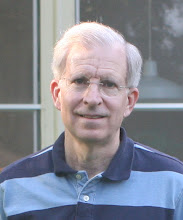
I believe in the supernatural.
The Wikipedia definition:
“The term supernatural or supranatural (Latin: super, supra "above" + natura "nature") pertains to an order of existence beyond the scientifically visible universe. Religious miracles are typically supernatural claims, as are spells and curses, divination, the belief that there is an afterlife for the dead, and innumerable others. Supernatural beliefs have existed in many cultures throughout human history.”
By its very definition it is impossible to prove scientifically the present existence or non-existence of the supernatural. The supernatural cannot be detected or measured by the physical human senses or by scientific instrumentation no matter how sensitive. However, it is rational to believe in the supernatural for the reasons that I will supply here.
The supernatural and paranormal have been the subjects of human pursuit throughout human history. People have been excited by levitation, séances with the dead, divination, spells and curses, horoscopes, and so forth. And most of this has been proven to be false. Nonetheless it has been a source of wealth and power for the con artists who have profited from it. And people continue to profit from interest in it today, from TV preachers claiming healing powers to the TV series SUPERNATURAL on the CW cable channel.
Blaise Pascal had something to say about this that I think is worth considering. He was a great French philosopher and scientist. He was an early developer of programmable machines (nearly 300 years before the advent of electronics), and the Pascal programming language is named after him. He was a physicist, and one of the units of the metric system is named after him as well as “Pascal's Law”. His picture used to be on the French 500-franc note, and I suspect that he may still be on a French Euro note. There is also “Pascal's triangle” in mathematics. One of his philosophical statements is that a falsehood that is widely maintained throughout humanity cannot exist unless it is mimicking something that is real. For example, there would be little demand for medicine-man elixirs unless there were real drugs (chemical drugs or herbal drugs) that really worked. So, according to Pascal's reasoning, the popularity of bogus supernatural is probably a negative byproduct of real supernatural. Pascal's thinking was truly unconventional. For most people, the widespread existence of clearly bogus religions confirms that all religion is false. But for Pascal, it confirmed that there must be true religion that the bogus religions are mimicking. In this kind of counterintuitive thinking he advanced science and human understanding.
Now back to my earlier claim:
The nonexistence of the supernatural cannot be confirmed by empirical measurement or by theoretical synthesis. Thus there is no rational method of determining its nonexistence. On the other hand, it is rational to believe in the supernatural, or at least its likelihood.
Here is an example of why this is the case:
Before the 19th Century no one understood electromagnetic radiation even though visible light is the visible portion of the electromagnetic spectrum. But electromagnetic radiation with either longer or shorter wavelength than visible light is invisible, and before the 19th Century there was no known method of measuring or even detecting the presence of invisible electromagnetic radiation. Nowadays there are limitless sources of man-made invisible electromagnetic radiation all around us. At almost any given location in a metro area we can have dozens of high definition television signals passing through our bodies. Adding to that wireless Internet and cellular telephony, we are likely to have all kinds of radiation carrying a broad variety of signal information passing though our bodies at any time. These are of course man-made, but there is also naturally occurring invisible electromagnetic radiation that has been present since before people walked on the earth. Some years ago I had the privilege of meeting with Arno Penzias, who won the Nobel Prize in physics for being the first person to discover evidence of the “Big Bang” - the beginning of the universe. He discovered it in invisible electromagnetic radiation present throughout the universe that originated at the Big Bang and that carries within it a sort of fingerprint of the Big Bang. If someone had said before the 19th Century that there is nothing supernatural, they would have been wrong because invisible electromagnetic radiation existed then, and by the definition of “supernatural” it was supernatural at the time. Numerous other examples could be listed that illustrate that throughout human history until the recent past, the supernatural has existed. Of course we cannot say by this method of analysis that the supernatural exists today. But in order for the supernatural to be non-existent today, science would need to have discovered for the first time in human history all information about the universe. That is unlikely.
By the way, I don't believe in séances. I just used the above photo as an example of the range of paranormal beliefs. However, I do like the movie GHOSTBUSTERS.





